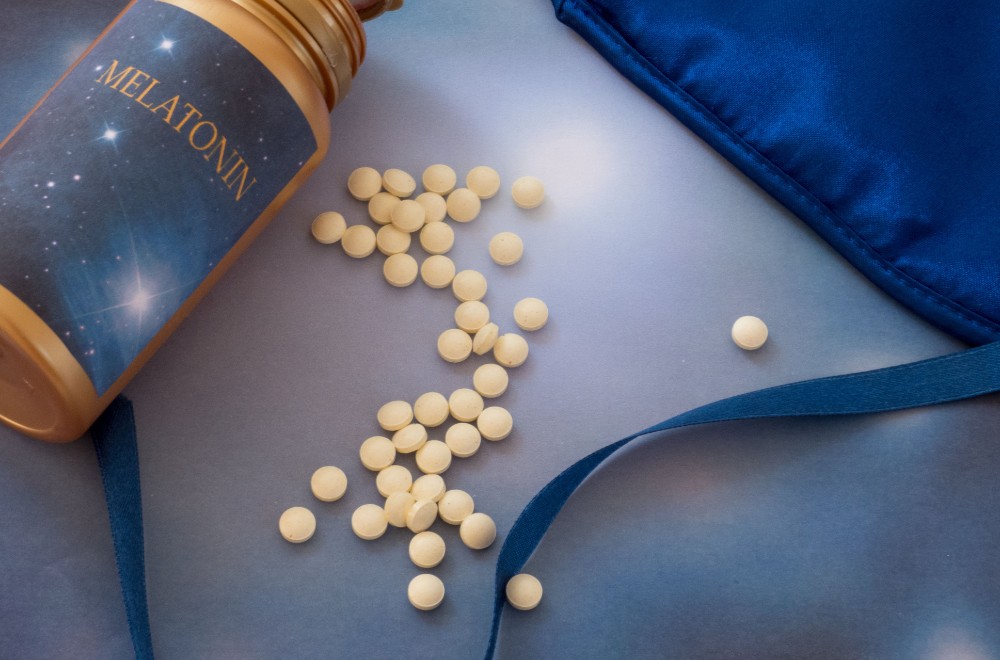While melatonin supplements have been proven to promote sleep and address insomnia, a recent study suggests that these over-the-counter capsules can be a cause of heart failure.
We’ve all been there—lying fully awake at night despite having a long day. You count sheep, meditate, or do deep breathing, but still nothing. If you’re one of those looking for immediate relief, chances are, you’ve already tried taking melatonin supplements. It makes you drowsy in 30 to 60 minutes, plus it’s a supplement you can easily purchase over the counter or on e-commerce platforms without a prescription.
But here’s the thing, an observational study presented at the American Heart Association Scientific Sessions 2025found a link between long-term melatonin use and a higher risk of heart failure.
Melatonin is a hormone produced in the brain that helps regulate your sleep-wake cycle. It is produced by the pineal gland in response to darkness, meaning our melatonin levels increase when it’s dark, then drop during daylight. A chemically identical version of the hormone is primarily found in over-the-counter supplements in many countries, including the Philippines. In the country and in the US, melatonin is registered merely as a dietary supplement. That is why they are less strictly regulated by the Food and Drug Administration.
Melatonin supplements are usually recommended to be taken before bedtime, maximizing their ability to produce the hormones and “reset” the body’s internal clock to a desired schedule. And while they have been proven to promote sleep and address insomnia, the American Heart Association warns that they are associated with a higher risk of heart failure diagnosis, heart failure hospitalization, and death from any cause in chronic insomnia.



Related story: Sleeping is not just for relaxation—it’s for resolution, study says
In the study presented in November 2025, researchers classified its respondents as the “melatonin group” and the “non-melatonin group.” Those who belong in the first group had used melatonin “long-term,” or a year or more, while those in the second group are those who never had melatonin based on their medical records.
Using a large international database (the TriNetX Global Research Network), the researchers then reviewed five years of electronic health records for members of both groups who are dealing with insomnia. The analysis found that adults with insomnia who used melatonin for 12 months or more had about a 90% higher chance of heart failure than those who had insomnia but didn’t take the supplement. It’s almost the same for those who had 2 melatonin prescriptions filled at least 90 days apart and have 82% higher chance of developing heart failure than non-users.
In terms of getting hospitalized, the study shows that melatonin users were nearly 3.5 times, or 19%, as likely to be hospitalized for heart failure compared to those not taking melatonin (6.6%). Melatonin is also putting its users at a disadvantage, as they are twice (7.8%) as likely to die from any cause than those in the non-melatonin group (4.3%) during the five-year period.
“Melatonin supplements are widely thought of as a safe and ‘natural’ option to support better sleep, so it was striking to see such consistent and significant increases in serious health outcomes, even after balancing for many other risk factors,” said Dr. Ekenedilichukwu Nnadi, lead author of the study and chief resident in internal medicine at Kings County Primary Care in New York.
No direct cause-and-effect relationship yet



While the results are striking, these scientific findings are still in need of further research primarily because the study was only based on available records from hospitals and electronic database. Everyone taking melatonin that doesn’t require a prescription would have been part of the non-melatonin group, either altering or validating the results greatly.
Apart from that, Nnadi clarified that while the use of melatonin supplements can lead to heart failure, it is possible that it can only be one of its many factors. “Worse insomnia, depression/anxiety or the use of other sleep-enhancing medicines might be linked to both melatonin use and heart risk,” Nnadi said. “While the association we found raises safety concerns about the widely used supplement, our study cannot prove a direct cause-and-effect relationship. This means more research is needed to test melatonin’s safety for the heart.”
“If our study is confirmed, this could affect how doctors counsel patients about sleep aids,” he noted.
Related story: Would you survive a month offline?
Related story: I moved to the south and it saved my mental health
Get good sleep for good health



With other without melatonin supplements, lack of sleep in itself raises the risk of many diseases and disorders. Adults who sleep for less than seven hours have higher chances of developing cardiovascular diseases like heart disease and stoke, metabolic disorders such as type 2 diabetes and obesity, as well as mental health conditions like depression. It can also lead to a weakened immune system and certain cancers.
And while sleep deprivation can also be caused by work, stress, family responsibilities, and other factors beyond our control, you can avoid it by adopting simple habits you can practice everyday. For most adults, a good target is to go to bed between 10 pm and midnight to align with natural circadian rhythms.
The Centers for Disease Control and Prevention (CDC) recommends keeping your bedroom quiet, dimming the lights to help with melatonin production, and sleeping in cool temperature as warm temperature can disrupt sleep. It’s also best to avoid caffeine and alcohol in the afternoon or evening, as well as eating large meals before bedtime. Prevent scrolling through your phone at least 30 minutes before bedtime, too, as the blue light emitted by gadgets mimics daylight and suppresses the production of melatonin.
Lastly, exercise regularly and maintain a healthy diet as they reduce stress, regulate hormones, and improve the body’s physical processes.








